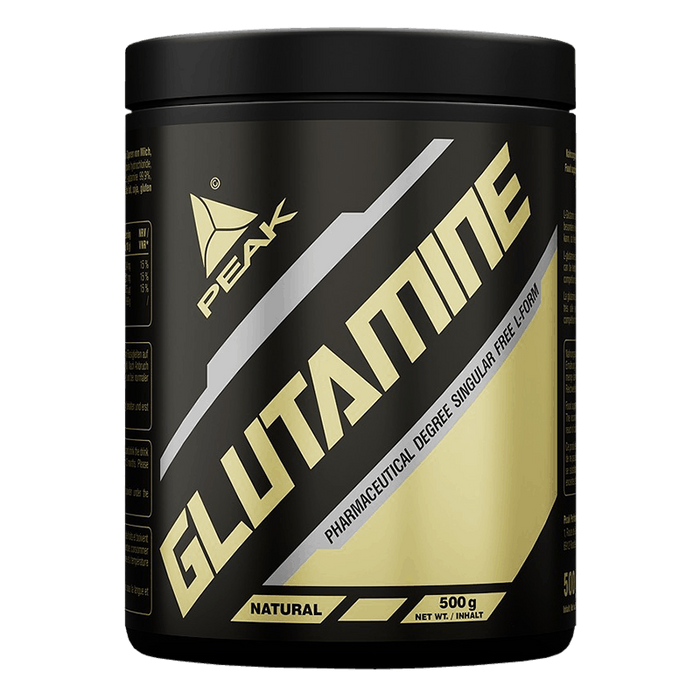The amino acid L-glutamine is one of the most important amino acids in sports nutrition and is involved in numerous bodily functions.
This 100 % pure glutamine in powder form is enriched with a vitamin B complex, which contributes to the reduction of tiredness and fatigue as well as to a normal energy metabolism and immune system.
What can I expect from glutamine?
Glutamine can be particularly helpful in hypercatabolic stress situations, as a glutamine deficiency is often observed here. In this respect, glutamine is also mainly supplemented during diets or very hard training (e.g. marathons).
Among other things, this glutamine formula can help to maintain a normal immune system even during such phases. However, the overall effects of glutamine on your individual goals (muscle building, fat loss, etc.) depend very much on your dietary habits and the use of supplementary supplements (sports nutrition) (protein, high-glycemic carbohydrates, creatine).
A sufficient and constant supply of protein and amino acids is very important for muscle building. However, you should also provide yourself with fast (especially in the morning, before and after training) and slow proteins to support the effect of glutamine.
Functionality and mode of action of glutamine
L-glutamine is a proteinogenic amino acid and therefore a building block of human protein. L-glutamine is non-essential, which means that glutamine can in principle be synthesized from the essential amino acids (EAAs), especially BCAAs.
However, a temporary lack of glutamine can occur in hypercatabolic stress states. About 20% of the free amino acids in the blood pool and over 60% in the muscle cells are in the form of glutamine, which indicates the importance of the amino acid for performance metabolism (bodybuilding and endurance sports).
Peak Glutamine is enriched with niacin, vitamin B6 and vitamin B12. This vitamin B complex contributes to the normal function of the immune system (vitamin B6 and vitamin B12), among other things. In addition, the B vitamins support the reduction of tiredness and fatigue as well as the correct function of energy metabolism, the regulation of hormonal activity, protein metabolism (vitamin B6) and the synthesis/metabolism of steroid hormones and vitamin D (pantothenic acid).
Use of glutamine in practice
Almost 90% of supplied glutamine reaches the liver, where it is used up and therefore does not even reach the extracellular muscle tissue. For this reason, BCAAs and EAAs can also be supplemented, from which the endogenous formation of glutamine can take place. It is also possible to increase the bioavailability of L-glutamine by taking it sublingually. With this type of intake, the glutamine powder is placed under the tongue, where it should remain for as long as possible. This can increase the glutamine status by up to 50%.

